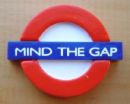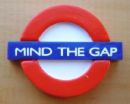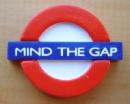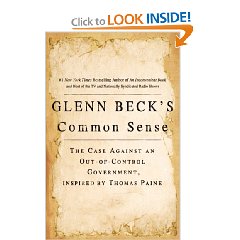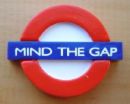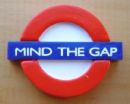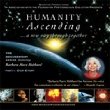
Good Training Tool for the Fundamentals,
Both books adopt the story-telling mode that has been justly pioneered by Steven Denning at CKO of the World Bank, see his tremendous The Springboard: How Storytelling Ignites Action in Knowledge-Era Organizations (KMCI Press), still the single best companion I have found to the still seminal 1960's book by Harold Wilensky, Organizational Intelligence (Knowledge and Policy in Government and Industry).
For myself, after two decades of feeling both attacked for being right in 1988 about the future of both intelligence and warfare, and angry over the incapacity of leaders to lead in all that time, the core point in this book that resonates with me and is also consistent with the twelve spiritual principles adopted by Phi Beta Iota, the new honor society for public intelligence, is this: do not interpret attacks as anything other than a mixture of ignorance, fear, and concern. Respond to attacks (or their obverse, sullen silence) with respect, clarity, integrity, and an offer to have a SAFE dialog. I've been very strong on integrity, and very weak on offering safety, and for that alone, this book is helpful to me.
Early on (page 20) the authors' assure my attention by stating that the core “one thing” that results from all that they preach and teach is this:
“When it comes to risky, controversial, and emotional conversations, skilled people find a way to get all relevant information (from themselves and others) out into the open.”
There you have it. The book covers obstacles to getting all the information on the table, and skills to overcome the obstacles and create safe environments for fulsome candid exchanges.
The essentials of the book are found in Chapter 7, where STATE is the acronym used to memorize
Share your facts
Tell your story
Ask for others' others' paths
Talk tentatively [others have told me I sound so assertive they hesitate to question my point of view or bring forward other views)
Encourage testing
The bottom line on this book, which is a simplified easily absorbed distillation of a great deal of research that was properly credited by the authors in their earliest work, is:
Learn to look (for signals from others and one's own signals)
Make it safe. This is the key, especially in a command and control environment where rankism prevails and the Peter Principle sees too many rise on the basis of time in grade rather than integral consciousness.
The authors pay special attention to “clever stories” that are used to cover-up what they call sell-outs and I call cop-outs, stories that allow for conflict and substance avoidance while playing out a story that justifies incivility, counter-attack, shunning, and so on. As one who was called a lunatic and an “agitator” for seeing the future in 1988, I can certainly say, while confessing my own sins, that the US Government is chock full of people at all levels who are in denial about reality and going through the motions of doing their jobs. They desperately need the kind of leadership this book discusses.
The authors stab at stakeholder issues by identifying four key questions:
Who cares?
Who knows?
Who must agree?
How many people is it worth involving?
On balance, I believe this book was very well chosen. It is perfect for rising executives who come to the class annoyed at being taken away from front line work in a time of war, simple enough to get the message across, and just right as a foundation for facilitated group discussion.
Here are seven other books I would have mid-career leaders digest:
The exemplar: The exemplary performer in the age of productivity
The Knowledge Executive
Radical Man: The Process of Psycho-Social Development
Powershift: Knowledge, Wealth, and Violence at the Edge of the 21st Century
Leadership Lessons of Jesus: A Timeless Model for Today's Leaders
Five Minds for the Future
Collective Intelligence: Creating a Prosperous World at Peace
I published the last one myself, contributing two chapters. I have removed one star from this book because it presents itself as an immaculate conception. Our Native American forbearers were practicing Seventh Generation Leadership centuries ago, a style of leadership focused on achieving sustainable consensus that took the long view. Epoch B bottom-up (multi-cultural) leadership, appreciative inquiry, deliberative dialog, and human scale leadership have all been pioneered by Tom Atlee, Juanita Jones, Paul Ray, Peggy Holman, and many others, as have the literatures on integral consciousness and hearing the voices of the dispossessed while pursuing a pedagogy of freedom.
This book is perfect for facilitating a crucial conversation among rising leaders at any level.
Click Here to Vote on Review at Amazon,
on Cover Above to Buy or Read Other Reviews,
I Respond to Comments Here or There

